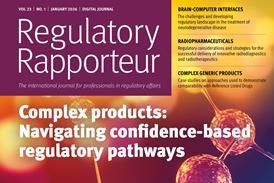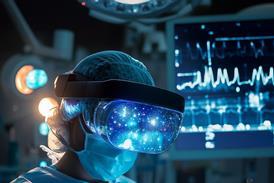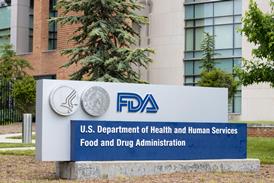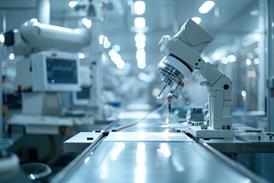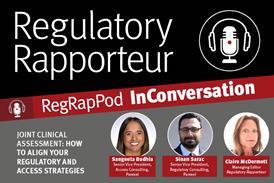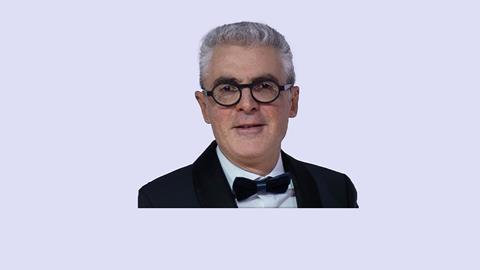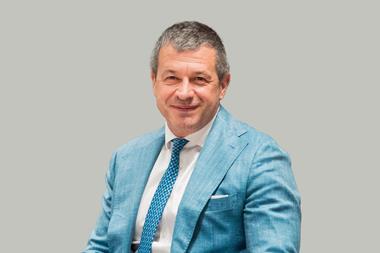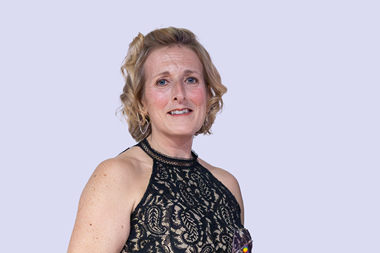David Uguen is Senior Vice President and Head of Regulatory at Orchard Therapeutics. The Orchard Therapeutics’ OTL-200 Regulatory Team, UK, was the winner of the ‘Futures’ award at the 2024 TOPRA Awards for Regulatory Excellence, an award that specifically celebrates the role of regulatory scientists in realising the potential of cutting-edge technologies. In this interview, David discusses the OTL-200 gene therapy for the treatment of early-onset metachromatic leukodystrophy (MLD) and lessons learnt during the process from development through to registration.
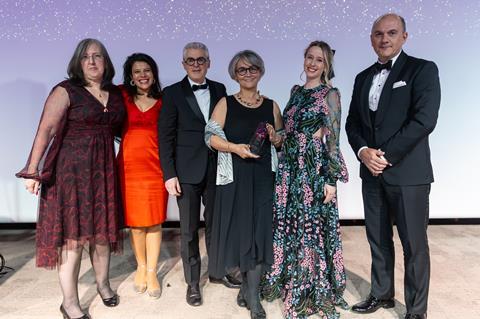
What is Orchard Therapeutics’ main vision and its particular areas of expertise?
At Orchard, we use our platform centred around hematopoietic stem cell gene therapy for people and families affected by severe genetic diseases. Our approach harnesses the unique power of a patient’s genetically modified blood stem cells to potentially correct the underlying cause of a genetic disease through a single treatment administration.
What is OTL-200 and what does it do?
OTL-200 is a gene therapy that Orchard has developed for the treatment of eligible children with early-onset metachromatic leukodystrophy (MLD). MLD is a rare, life-threatening inherited disease. It’s caused by a mutation in the arylsulfatase-A (ARSA) gene, which results in the accumulation of sulfatide fats in the brain and in other areas of the body.
Over time, children with MLD experience problems relating to their motor and central nervous systems. We estimate that 50% of children with the most aggressive form of MLD will die within five years of symptom onset. OTL-200 is an advanced therapy medicinal product which aims to correct the underlying cause of MLD. This is done by inserting a functional copy of the defective gene into the cells of the patient ex vivo (outside the body), using a lentiviral vector. The genetically modified cells are then infused back into the patient and, once engrafted, produce the missing enzyme. This has the potential to restore the enzymatic function and stop or slow down disease progression with a single treatment.
Can you tell us a bit more about the OTL-200 journey?
The registration of OTL-200 in the EU, the UK and the US is the accumulation of decades of research and development. It is also the result of an efficient partnership between academic institutions such as SR-Tiget in Italy, clinical investigators from the Ospedale San Raffaele (OSR), which is a university hospital in Milan, large pharma companies such as GSK, and a small gene therapy company which is Orchard Therapeutics. It took 17 years between the initial research and the first registration.
There were several challenges during the development and registration of the product. Firstly, the nature of the product was itself a challenge, as autologous gene therapies are unique medicinal products.
A second challenge was the clinical development of the treatment as there were very few patients treated with a heterogeneous disease; less than 40 patients in total participated in the clinical studies. Also, the pharmaceutical development process was very lengthy and led to a very complex comparability exercise.
In addition, the various regulatory agencies (including the European Medicines Agency (EMA), the Medicines and Healthcare products Regulatory Agency (MHRA) and the US Food and Drug Administration (FDA)) were all involved at different times in the development process and inevitably had different views of how such a therapy should be developed.
You have to be patient, understand different viewpoints, and have excellent communication within and outside the team
With three agencies involved, how did you manage their different requirements?
You need to reach a consensus because obviously you can’t do a separate development for each regulatory agency. When agencies are not aligned on certain aspects of the development plan, you have to find a common approach that allows you to use the data generated in a sensible manner so that it can eventually lead to registration in each different region. So, for example, in the US, the FDA didn’t agree with the way some of the clinical data had been assessed for the EU filing. This meant that we had to re-analyse these data and ‘repackage’ them when preparing the Biologics License Application (BLA) filing.
How have you personally been involved in the whole process? And have many team members been involved from the start to the finish of the project?
Registration of the product has been the result of 17 years of development, so I have not been on the project for the whole time. The persons who have been involved throughout the entire process are clinicians from OSR in Italy (for example, Professor Alessandro Aiuti). However, some of the Orchard Therapeutics team members have actively participated for several years. I have been personally involved in the project for more than six years and this will continue as we’re now looking at registering OTL-200 outside of the US and Europe.
What have you been particularly proud of during this process and why?
There were several real ‘Wow’ moments along the way. Obviously the initial EMA submission, followed by the first registration in the EU and in the UK were incredible achievements.
I had the joy of working with incredibly motivated and passionate people, extremely knowledgeable experts, hard workers, and also humble individuals
Then, when we intensified our discussions with the FDA, at the point we realised we could finally reach a mutual understanding with the Agency and felt confident that we had a path forward for the US registration, that was also a very special time. Of course, getting the BLA approved was also a very big moment.
What do you think makes a successful team?
In the case of OTL-200, I had the joy of working with incredibly motivated and passionate people, extremely knowledgeable experts, hard workers, and also humble individuals. All of them know that team spirit is necessary to achieve the registration of such a complex drug. I feel overwhelmingly privileged to work with these talented people on a day-to-day basis.
Resilience is also essential because, at some points in the project, we were blocked on certain issues. We had to imagine new solutions and, eventually, we made it happen. You have to be patient, understand different viewpoints, and have excellent communication within and outside the team, especially with regulatory agencies. In the end it worked to the benefit of patients which is the most important thing.
Do you think that having the ultimate goal of improving patients’ lives is what drives people’s passion for what they’re doing?
Certainly; yes it does. At Orchard Therapeutics, we have the privilege to meet with patients and their carers quite often, so we really understand how serious these diseases are and our passion lies in trying to help them. In the regulatory field, we are also at the centre of all the different functions, so team spirit is another must.
You’ve spoken about the challenges you’ve faced. Are there any lessons you’ve learnt that you could share?
There are many lessons learnt! One I particularly remember is that we shouldn’t expect a regulatory agency to understand all the complexities of a very innovative drug development in one go. It takes a significant amount of effort and time to establish and maintain a good mutual understanding with regulators, and this needs to be planned for upfront in the project timelines.
What’s next for Orchard?
Orchard is working on developing several gene therapies for rare and/or very serious diseases. We have several products in research and in early or late stages of development. Also, Orchard Therapeutics is now a Kyowa Kirin company, so personally, I’m very much looking forward to working with our new colleagues to further develop and explore the potential of gene therapies, and to find ways to treat more patients suffering from various devastating diseases.
Do you any have success stories from OTL-200 that you could share?
We have many success stories – and some of them are presented on our company website. Our most important success is to have treated some of our earliest patients more than twelve years ago with a remarkable durability of effect. These types of outcome are what makes our involvement at Orchard so rewarding.


